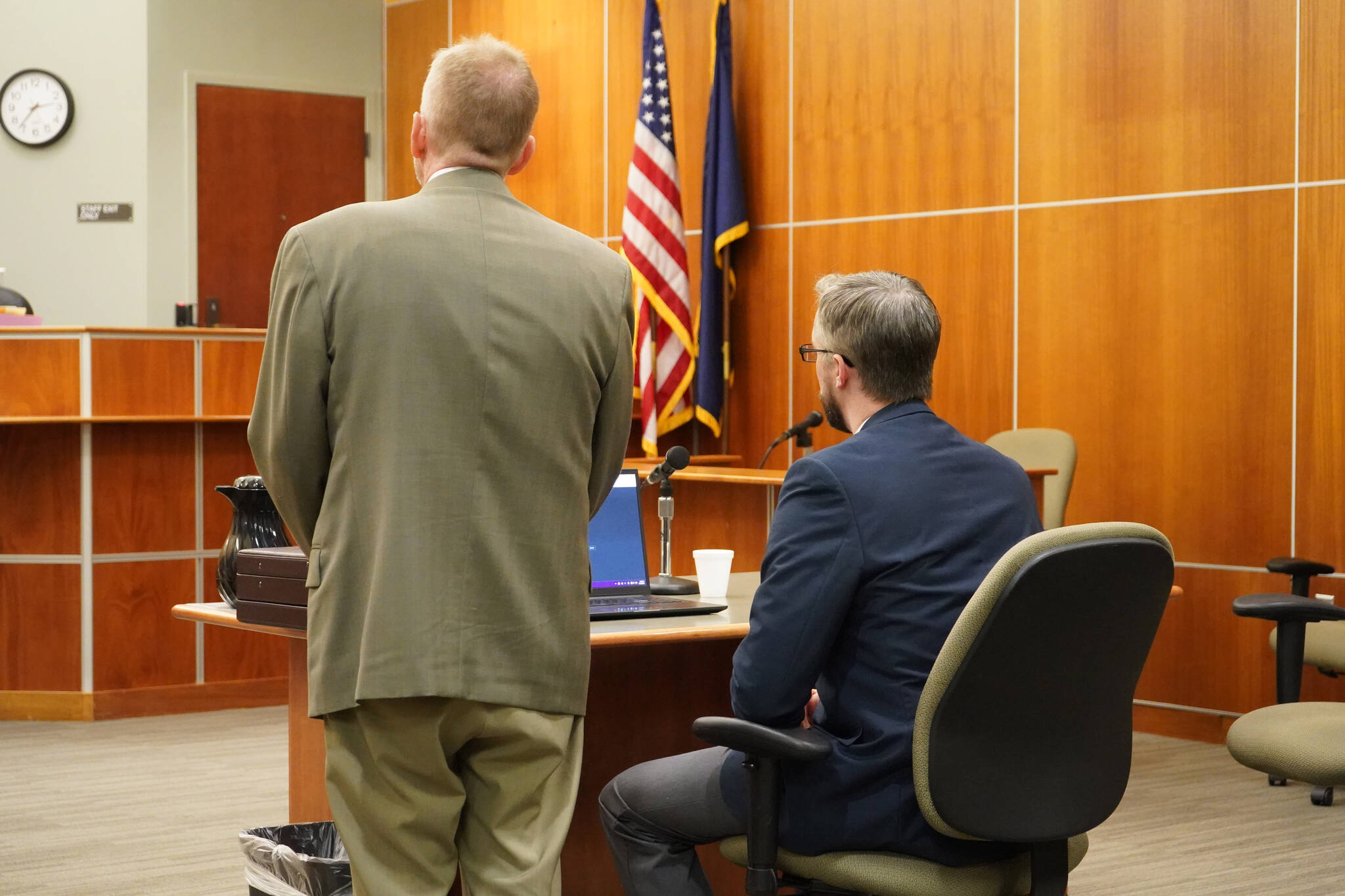The attorney representing a former Soldotna High School teacher and union head filed a motion last Wednesday to dismiss the case, asserting that the grand jurors who handed down a 61-count indictment last July were presented with false and misleading evidence.
Nathaniel Erfurth, 35, of Soldotna, was arrested last May after a former student reported to law enforcement that she had been “sexually assaulted” by Erfurth while she was under the age of 18, according to an affidavit written by Alaska State Trooper Samuel Webber.
From 2020 to his removal last year, Erfurth served as president of the Kenai Peninsula Education Association, the union that represents Kenai Peninsula Borough School District teachers. Before that, he taught history and government at Soldotna High School.
Originally arrested on two counts of sexual abuse of a minor, Erfurth now faces 42 counts of sexual abuse of a minor in the second degree, seven counts of sexual abuse of a minor in the fourth degree and six counts of possession of child pornography following the grand jury indictment. He pleaded not guilty to all counts last July.
It’s that grand jury indictment that Erfurth and his attorney, Eric Derleth, now seek to dismiss. Derleth filed the motion Wednesday in which he says that Erfurth did not confess to sexual abuse, that the prosecution withheld evidence to the contrary from grand jurors and that the state did not find or present child pornography on electronic devices owned by Erfurth and the former student.
“When untrue evidence is presented to the Grand Jury in Alaska, the resulting indictment must be dismissed where the untrue evidence is material,” the motion says.
Webber, the lead investigator on the case, wrote in a May 20 affidavit accompanying charging documents that troopers arrested Erfurth after monitoring and recording a phone call during which the former student told Erfurth that she had “written about their sexual relationship” in a journal. When asked by the former student whether he “regretted sleeping with her,” the affidavit says, Erfurth said, “If this is how I’m getting repaid for it, yes.”
Derleth says that the grand jury was not made aware that, across more than four hours’ worth of monitored calls between Erfurth and the former student, Erfurth “repeatedly and consistently denied any sexual relationship” between them.
“There was no admission of a sexual relationship and no confession to a criminal sexual relationship — this was not made clear to the (Grand Jury); rather, the opposite was submitted to the (Grand Jury),” the motion says. “This untrue evidence of a ‘confession’ was submitted both through Trp. Webber’s testimony and prior to testimony when the (District Attorney) summarized a ‘road map’ of the evidence the (Grand Jury) would hear.”
Derleth says, further, that the grand jury was not presented with evidence that Erfurth possessed or accessed child pornography and that no such content was found on either Erfurth or the former student’s electronic devices.
“Instead of leveling with the (grand jury) that no evidence of (child pornography) was found on any electronic devices, such that Erfurth could fairly be said to have ‘possessed’ it or ‘accessed with intent to view’ (child pornography) on the unallocated space, the (grand jury) was misled to believe that there was electronic evidence of possession,” the motion says.
Patty Sullivan, a spokesperson for the Alaska Department of Law, said Thursday that the department won’t comment on active litigation, but that the criminal justice system and that the court will ultimately decide if an error was made.
“Although we won’t comment on pending litigation, the criminal justice system is an adversarial system by design,” Sullivan wrote. “The court — not the parties — will determine if a legal error was made during the grand jury process.”
Derleth said Wednesday that it is difficult to know what will happen if the motion to dismiss is granted and that cases are sometimes re-indicted.
“The issues here are very serious because the state presented false testimony which they have been emphasizing over and over to bolster a weak case,” Derleth said via email.
Reach reporter Ashlyn O’Hara at ashlyn.ohara@peninsulaclarion.com.


